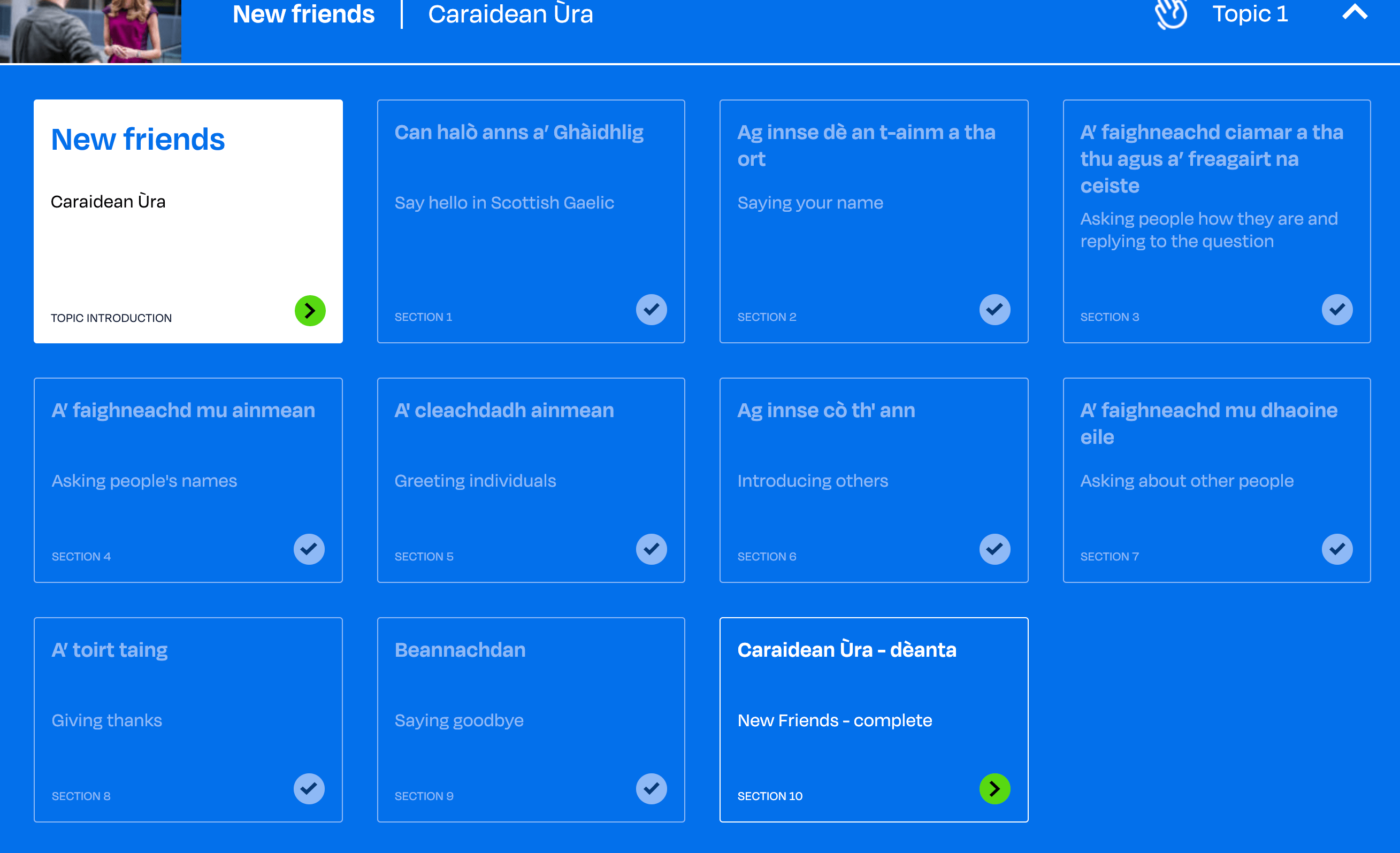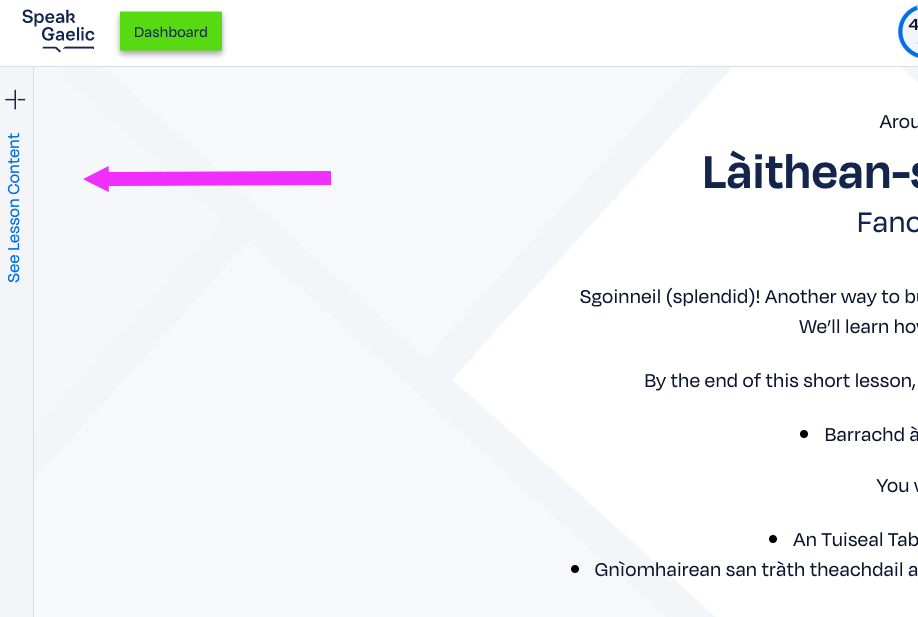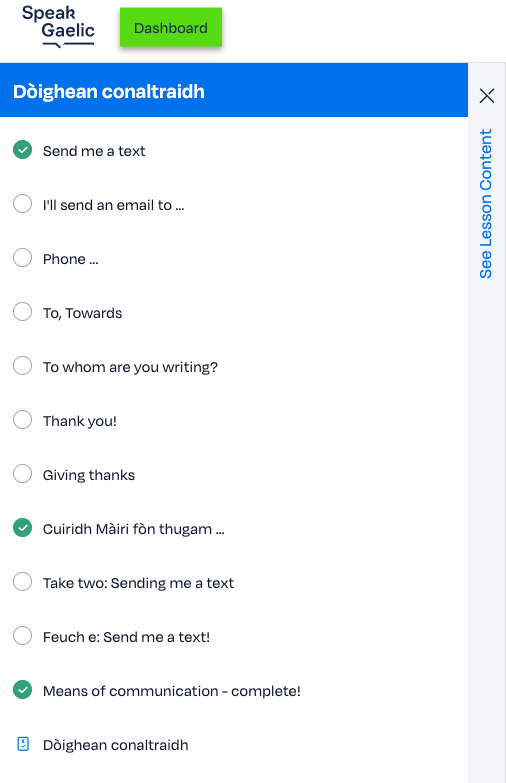Dà-chànanas
Bilingualism
Experts say that bilingualism is good for children, and for all of us!
But not everyone agrees with this.
In this part of the lesson, we will debate/discuss the advantages and the challenges involved in bilingualism.
dà-chànanas
bilingualism
buannachd
advantage
duilgheadas
difficulty
dùbhlain
challenges
neartan
strengths
laigsean
weaknesses
mion-chànan
minority language
Foghlam tro Mheadhan na Gàidhlig
Gaelic Medium Education
Why don’t you have a go at this task! If you have a Gaelic-speaking friend, you could do this together. If you don’t—no problem—you can have double the fun!
Have a conversation—or debate—about bilingualism.
You can research this online before you start, if you like.
Dè na buannachdan a tha an lùib dà-chànanas?
What are the pros involved in bilingualism?
A bheil e cudromach gum bruidhinn inbhich Gàidhlig mus bruidhinn clann sgoile i?
Is it important that adults speak Gaelic before schoolchildren speak it?
Carson a tha cuid na aghaidh?
Why are some against it?
A bheil dà-chànanas nas nàdarra ann an dùthchannan eile?
Is bilingualism more natural in other countries?
Càite agus carson?
Where and why?
Cò ris a tha e coltach a bhith dà-chànanach anns a’ chomann-shòisealta againn?
What’s it like to be bilingual in our society?
A bheil taic gu leòr ann?
Is there enough support/help?
Dè dhèanadh e na b’ fhasa dhut Gàidhlig a chleachdadh?
What would make it easier for you to use Gaelic?
A bheil luach ga chur ann an dà-chànanas anns a’ chomann-shòisealta againn?
Is bilingualism valued in our society?




